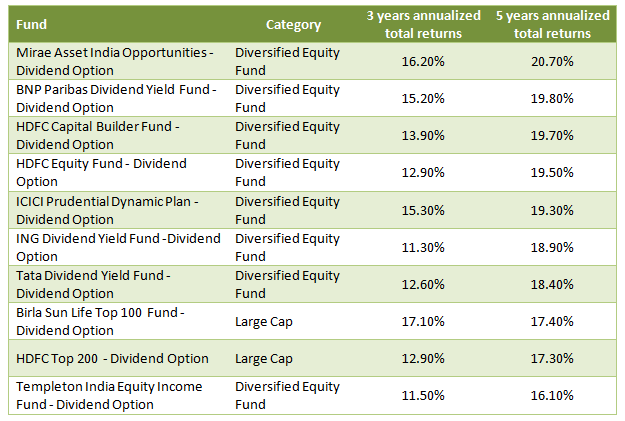Mutual Fund Dividends
Post on: 14 Июнь, 2015 No Comment

Updated February 3, 2008
Top page in our guidance on mutual fund dividends.
Information in this part of our Mutual Fund Tax Guide will help you understand tax rules that apply to mutual fund dividends and other distributions.
Reinvested dividends
Most mutual funds allow you to reinvest your dividends, and many investors choose to do so. When you have your dividends reinvested you’re treated the same as if you received the dividend in cash and then used that money to buy additional shares. That means two things:
- You’ll report the same income from a reinvested dividend as you would from a dividend you received in cash.
- The reinvestment is an additional purchase, causing an increase in the cost basis of your overall holdings in the mutual fund.
Kinds of dividends
Mutual funds can receive various kinds of income, each with a different tax treatment. Most of these tax differences flow through to the mutual fund investor. If a mutual fund holds stock more than a year and sells it for a capital gain, for example, part of your dividend from the mutual fund will be treated as long-term capital gain, allowing you to benefit from the lower tax rates that apply to that kind of income. Mutual fund distributions fall into the following categories:
Ordinary dividends
Ordinary dividends include all kinds of taxable income except long-term capital gains. They are not necessarily taxed at ordinary tax rates, though, because this category can include qualified dividends that are taxed at lower rates.
Capital gain distributions
Your mutual fund distribution may include long-term capital gain. This part of the dividend generally qualifies for favorable tax treatment. Oddly enough, though, when a mutual fund distributed short-term capital gain, it’s included in the ordinary dividends.
If your mutual fund invests in municipal bonds or other state and local government obligations, some or all its distributions will be treated as exempt interest. Although these payments aren’t included in your taxable income, they can affect the taxation of Social Security benefits or, for certain kinds of bonds, cause you to pay alternative minimum tax (AMT).
If your mutual fund invests in debt obligations of the federal government, you may be able to treat some or all its distributions as federal government interest. This category of income does not receive any special treatment on your federal income tax return but is exempt from state income tax.
Sometimes a mutual fund makes a payment that doesn’t represent income — not even exempt income. It’s simply returning some of the money you invested. Generally you don’t have to report these payments, but you have to adjust the basis used to figure the amount of gain or loss when you sell your shares.
Capital gain allocations
Nearly all mutual funds make capital gain distributions. so it’s unlikely you’ll encounter a capital gain allocation. If you do, your mutual fund will send Form 2439, and you’ll have to deal with some special rules.
Reports you’ll receive
From time to time during the year you may receive statements concerning activity in your mutual fund account. Your official tax reports normally arrive in January or early February, and consist of one or more of the following items:
- Form 1099-DIV, reporting most types of dividends, including dividends that represent taxable interest.
- Form 1099-INT, reporting only dividends that represent tax-exempt interest.
- A tax report from the mutual fund company or your broker providing additional information, such as the portion of exempt interest that comes from different states.
- Form 2439, used in the rare occasions when a mutual fund makes an allocation of capital gain instead of distributing it to shareholders.
Forms 1099-DIV and 1099-INT won’t necessarily look like official IRS forms. Companies are allowed to provide substitute forms, which may be printed on the same page as other information you receive from your mutual fund or broker.
January Dividends
There’s a special rule you should be aware of if you receive dividends in January. Mutual funds are permitted to treat certain January dividends as if they were paid in the previous year. It may seem like a mistake when the mutual fund reports this income as if you received it in December of the previous year. It’s not a mistake, though, just a special feature of the way the tax law treats mutual funds.














